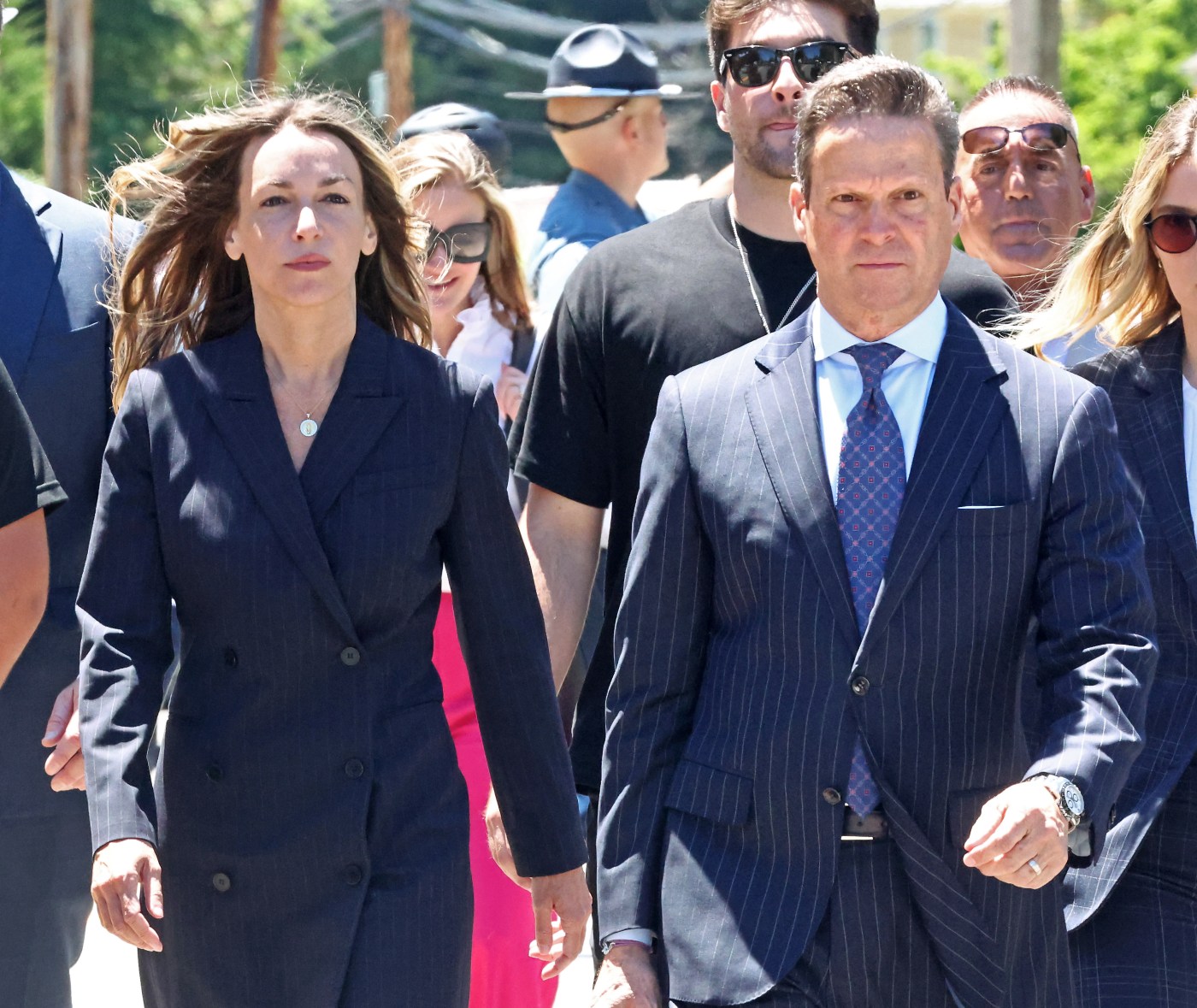
What if the jury is hung in the Karen Read trial?
What happens if the Karen Read murder trial jury can’t decide her case?
Jurors in the trial indicated midway through their fourth day of deliberations that they believed they were deadlocked. But “deadlocked” is a legal term that they cannot decide for themselves, and Judge Beverly Cannone ruled that they were to consider deliberations.
“The jury could communicate repeatedly about being deadlocked and that can become problematic and it could be earlier than usual,” retired state Superior Court Judge Jack Lu told the Herald on Friday. “This is a big case, a lot of evidence, and as in many cases, a lot of emotion.”
In his 16 years of Superior Court judicial experience — plus five more at the Boston Municipal Court — he said that for a trial this lengthy and with this many witnesses, “I would not have any particular concern until eight or nine days, or two weeks, of deliberation.”
Jurors sat through 29 days of testimony and another half day of closing arguments and jury instructions, as well as 74 total witnesses, before beginning their deliberations on Tuesday afternoon. They left before 4 p.m. the following two days, leading to short days of deliberation and submitted a note indicating a deadlock right before noon on Friday.
“It’s early but the steps here have to be done very carefully because in a day or two it can get pretty dicey,” Lu said. “If they come back, say, on Monday afternoon at 3 and say they are still deadlocked … in my opinion this is stickier.”
At that point, he said, the Supreme Judicial Court will be watching Cannone, who Lu called “a very experienced judge,” very closely and her moves would be precise to make sure “there has been careful deliberation” and the case wasn’t declared a mistrial prematurely.
She would first issue a “Tuey-Rodriguez” warning, which is a prescribed secondary jury instruction to stir them into deliberative action.
“They may not know that, but it is a warning,” Lu told the Herald. “After that and they come back and say that they are still deadlocked … then the judge may be required to declare that they are deadlocked and declare a mistrial.”
The model language
Our constitution and laws provide that in a criminal case the principal way for deciding questions of fact is the verdict of a jury. In most cases — and perhaps, strictly speaking, in all cases — absolute certainty cannot be attained or expected.
The verdict to which each juror agrees must of course be his or her own verdict, the result of his or her own convictions, and not merely an acquiescence in the conclusion of the other jurors. Still, in order to bring six minds to a unanimous result, you must examine the issues you have to decide with candor and with a proper regard and respect for each other’s opinions. You should consider that it is desirable that the case be decided. You should consider that you have been selected in the same manner, and from the same source, as any future jury would be. There is no reason to suppose that the case will ever be submitted to six persons who are more intelligent, more impartial, or more competent to decide it than you are, or that more or clearer evidence will be produced on one side or the other. With all this in mind, it is your duty to decide this case if you can do so conscientiously.
In order to make a decision more attainable, the law always imposes the burden of proof on one side or the other. In this criminal case, the burden of proof is on the Commonwealth to establish every part of it, every essential element, beyond a reasonable doubt. If you are left in doubt as to any essential element, the defendant is entitled to the benefit of that doubt, and must be acquitted.
In conferring together, you ought to give proper respect to each other’s opinions, and listen with an open mind to each other’s arguments. Where there is disagreement, those jurors who are for acquittal should consider whether a doubt in their own minds is a reasonable one, if it makes no impression on the minds of other jurors who are equally honest, equally intelligent, and who have heard the same evidence, with the same attention, with an equal desire to arrive at the truth, and who have taken the same oath as jurors. On the other hand, those jurors who are for conviction ought seriously to ask themselves whether they may not reasonably doubt the correctness of their judgment, if it is not shared by other members of the jury. They should ask themselves whether they should distrust the weight or adequacy of the evidence if it has failed to convince the minds of their fellow jurors.


